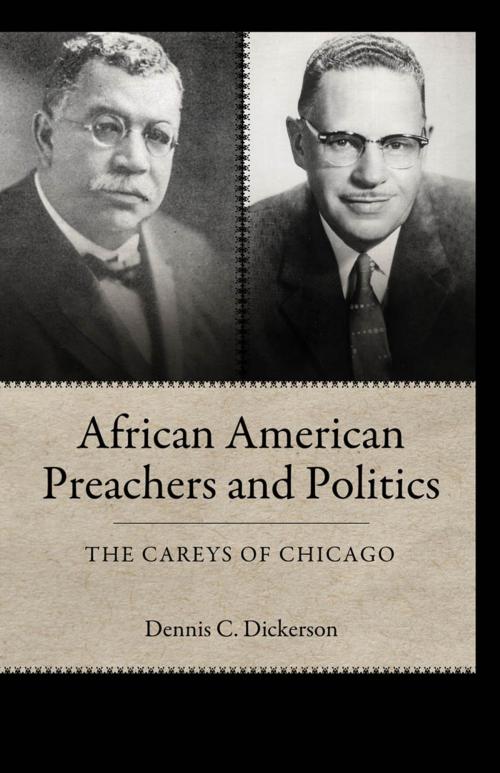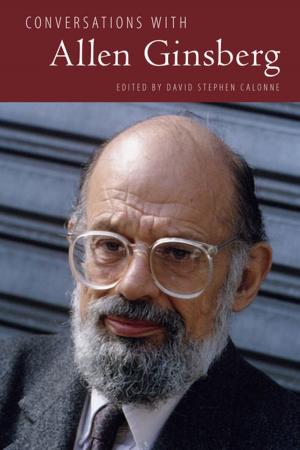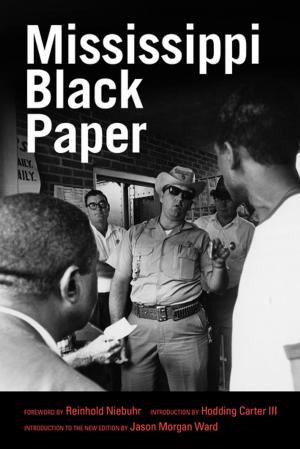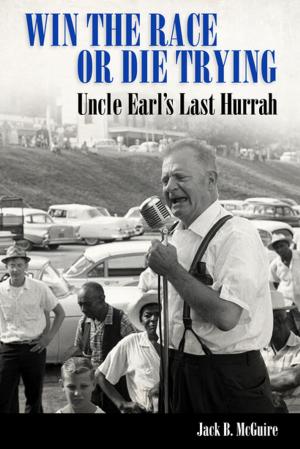African American Preachers and Politics
The Careys of Chicago
Nonfiction, Religion & Spirituality, Reference, History, Social & Cultural Studies, Social Science, Cultural Studies, African-American Studies, Americas, United States, 20th Century| Author: | Dennis C. Dickerson | ISBN: | 9781604734287 |
| Publisher: | University Press of Mississippi | Publication: | June 15, 2010 |
| Imprint: | University Press of Mississippi | Language: | English |
| Author: | Dennis C. Dickerson |
| ISBN: | 9781604734287 |
| Publisher: | University Press of Mississippi |
| Publication: | June 15, 2010 |
| Imprint: | University Press of Mississippi |
| Language: | English |
During most of the twentieth century, Archibald J. Carey, Sr. (1868-1931) and Archibald J. Carey, Jr. (1908-1981), father and son, exemplified a blend of ministry and politics that many African American religious leaders pursued. Their sacred and secular concerns merged in efforts to improve the spiritual and material well-being of their congregations. But as political alliances became necessary, both wrestled with moral consequences and varied outcomes. Both were ministers to Chicago's largest African Methodist Episcopal Church congregations- the senior Carey as a bishop, and the junior Carey as a pastor and an attorney.
Bishop Carey associated himself mainly with Chicago mayor William Hale Thompson, a Republican, whom he presented to black voters as an ally. When the mayor appointed Carey to the city's civil service commission, Carey helped in the hiring and promotion of local blacks. But alleged impropriety for selling jobs marred the bishop's tenure. The junior Carey, also a Republican and an alderman, became head of the panel on anti-discrimination in employment for the Eisenhower administration. He aided innumerable black federal employees. Although an influential benefactor of CORE and SCLC, Carey associated with notorious FBI director J. Edgar Hoover and compromised support for Martin Luther King, Jr. Both Careys believed politics offered clergy the best opportunities to empower the black population. Their imperfect alliances and mixed results, however, proved the complexity of combining the realms of spirituality and politics.
During most of the twentieth century, Archibald J. Carey, Sr. (1868-1931) and Archibald J. Carey, Jr. (1908-1981), father and son, exemplified a blend of ministry and politics that many African American religious leaders pursued. Their sacred and secular concerns merged in efforts to improve the spiritual and material well-being of their congregations. But as political alliances became necessary, both wrestled with moral consequences and varied outcomes. Both were ministers to Chicago's largest African Methodist Episcopal Church congregations- the senior Carey as a bishop, and the junior Carey as a pastor and an attorney.
Bishop Carey associated himself mainly with Chicago mayor William Hale Thompson, a Republican, whom he presented to black voters as an ally. When the mayor appointed Carey to the city's civil service commission, Carey helped in the hiring and promotion of local blacks. But alleged impropriety for selling jobs marred the bishop's tenure. The junior Carey, also a Republican and an alderman, became head of the panel on anti-discrimination in employment for the Eisenhower administration. He aided innumerable black federal employees. Although an influential benefactor of CORE and SCLC, Carey associated with notorious FBI director J. Edgar Hoover and compromised support for Martin Luther King, Jr. Both Careys believed politics offered clergy the best opportunities to empower the black population. Their imperfect alliances and mixed results, however, proved the complexity of combining the realms of spirituality and politics.















